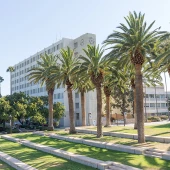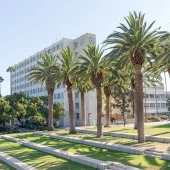Now that you have finished your undergraduate degree, the next step is continuing your studies abroad. But what kind of postgraduate course should you do? Specialization, Master's Degree or PhD? Before you choose the best option for your career overseas, mind the differences between each type of qualification.
Specialization, MBA, Master’s Degree and PhD: all of them are classified at the postgraduate level, i.e., after the undergraduate degree. While the first two are generally shorter, more practical and focused on a specific subject – ‘to specialize’ - the last two levels tend to last longer, being the ideal choice if you want to extend your knowledge or if you intend to become a researcher or a university teacher, providing you a Master or a Doctor title.
Specialization
Technically and professionally oriented, a specialization will deepen your knowledge on your area of study, focusing and directing your undergraduate degree. Normally, a specialization is preferred by recent graduates and the average duration is one year, which may vary a little depending on the country you choose and on your field of study. At the end, you will receive a Specialist certificate.
- MBA
The famous MBA is, actually, a specialization directed to a specific area: Business and Administration. If you decide to enrol an MBA, you will find a program highly connected to the professional environment, recommended for those who are already inside in the labour market – in some countries, +1 year experience is required to apply, since you will have to use and discuss practices and techniques undertaken by professionals and executives at a corporate level. Want to work as coordinator, director or a related role in the future? Then, an MBA is the best choice for you.
Master’s Degree
Different from a specialization, the master’s degree is not so much recommended to deepen your knowledge in a specific area, but more to proceed and extend the academic studies you've already started at your undergraduate program. In some cases, it is assumed that you already have some theoretical notions of the correspondent field of study. However, the master’s degree can also be a way to redirect your career and complement your previous degree with new subjects, if you decide to choose a different area – therefore, we can say that a master's degree is more flexible than a specialization.
There are two main types of master’s degrees: taught and research. Taught master’s degrees are mostly based on lectures and seminars; here, as a student, you can choose your own research project. The research process takes longer at the research master’s degree, requiring more independent work from you. According to the country, the field of study and the type of program, they can take one to three years, part-time or full-time, requiring the final presentation of a thesis.
PhD
At a more advanced level than the master’s degree, a PhD is the next step on your knowledge of your field of study. During your PhD program, you are working to become a Doctor of Philosophy, consolidating and intensify your learning to finally become a researcher and to be awarded with a certificate of Doctor of Philosophy. The duration of the program is normally three to four years, but it can take longer to conclude if you decide to study part-time. During a fair part of the course you will have to develop an extensive research on a specific matter, which will culminate in a dissertation, with compulsory oral presentation at the end of the program. This is the “free pass” you need to teach at a higher education level or to work and assume a leading position in a specific area, which means that the PhD program can also be taught or research oriented.










